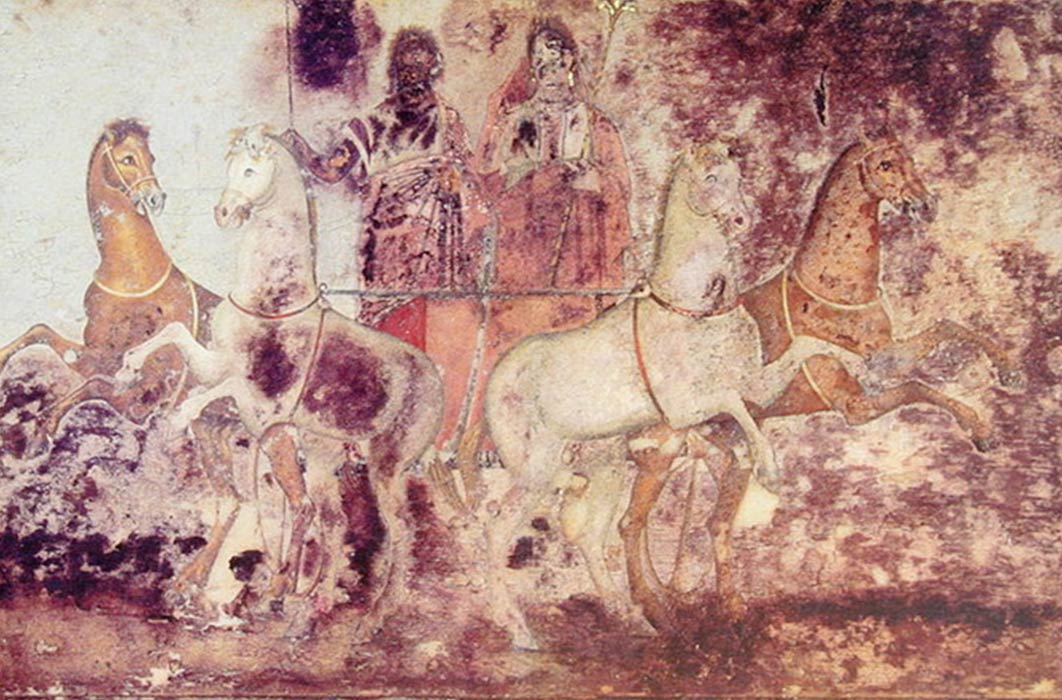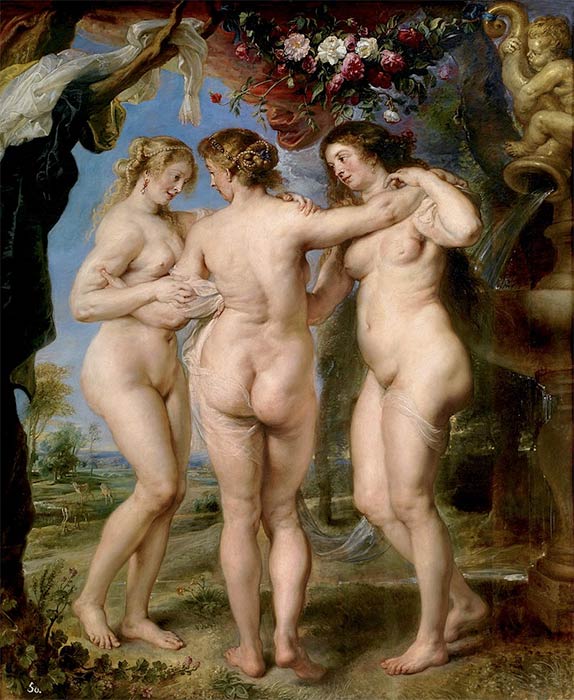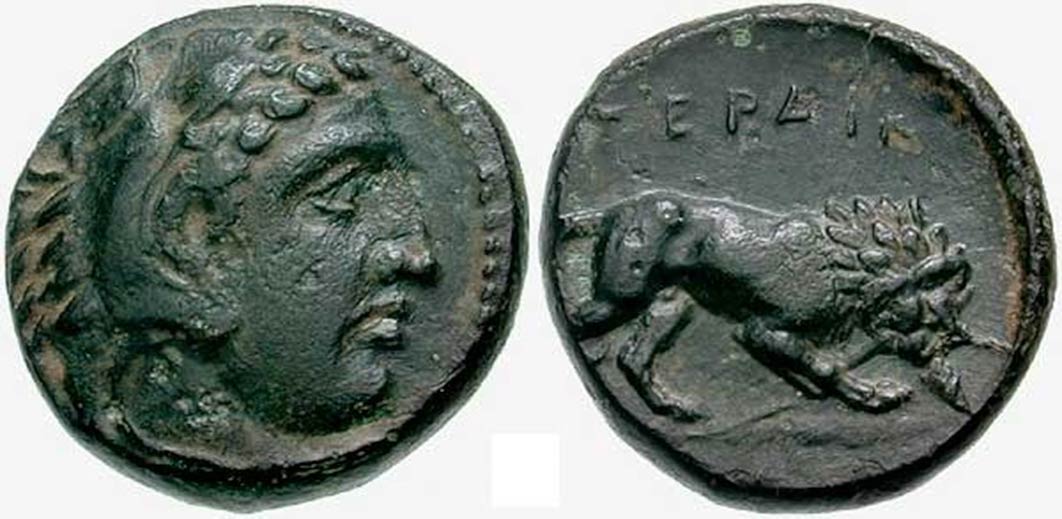
Macedonian Game of Thrones Eurydice The Matriarch and Eurydice the Rebel
Eucleia, the ancient Greek female personification of glory and good repute, is the youngest of the Charites. She was the daughter of Hephaestus and Aglaea, the goddess of splendor and adoration. Alternatively, Greek biographer Plutarch tells that Eucleia was the daughter of Heracles and Myrto, daughter of Menoetius from Opus (one of the Argonauts), who died a virgin and came to be venerated as a goddess. In the fifth century Athenian vase paintings, Eucleia is often seen among the attendants of Aphrodite, reflecting the good status of a chaste bride or performing stereotypically feminine tasks.

The Three Charities or Graces by Peter Paul Rubens (1635) - Museao del Prado (Public Domain)
Eucleia’s images and altar were worshipped in Locris and Boeotia, Greece, where brides and grooms would perform a sacrifice. There was also a sanctuary dedicated to Eucleia at Aegae, the original capital of Macedonia which also served as the burial-place of the Macedonian kings. At least two statue bases in the sanctuary were votive offerings by a woman named Eurydice. Two inscriptions were found and one of these inscriptions, dating back to 340 BC, reads “Eurydika daughter of Sirras to goddess Eukleia.” Eurydice is the paternal grandmother of Alexander the Great. But she was not the only Eurydice of Macedonia. Her great-granddaughter, a niece of Alexander the Great, was also named Eurydice. Both women were as far removed from the stereotypical docile and subdued image that Eucleia was supposed to represent.

A banquet scene from a Macedonian tomb of Agios Athanasios, Thessaloniki, fourth century BC (Public Domain)
Eurydice Matriarch of the Macedonian Kings
In about 390 BC, possibly in an effort to secure allies against the Illyrians after they defeated him in 393 BC, King Amyntas III of Macedon married a young princess named Eurydice, the daughter of Sirras of Lyncestis and grand-daughter of Arrhabaeus of Upper Macedonia. Born around the 407 BC, Euridyce would have been around the age of 17 years by the time of her marriage.
Ten years after their marriage, King Amyntas III was forced to give away a portion of his kingdom to the Greek Chalcidians who had extended their control to include Pella, the capital of Macedonia by 382 BC. Sparta, the most powerful of the Greek states at that time, intervened and restored Amyntas to his capital in 379 BC on the condition that Macedonia had to accept subservience to Sparta.
Through her marriage, Eurydice had four children. Her eldest son was Alexander II, who became the king of Macedonia immediately after the death of his father Amyntas III in 371 BC and reigned until his own assassination. The murder of Alexander II was instigated in 369 BC by Ptolemy of Aloros, alleged lover of Eurydice, as well as husband of her daughter Eurynoe, to gain control of the kingdom.





